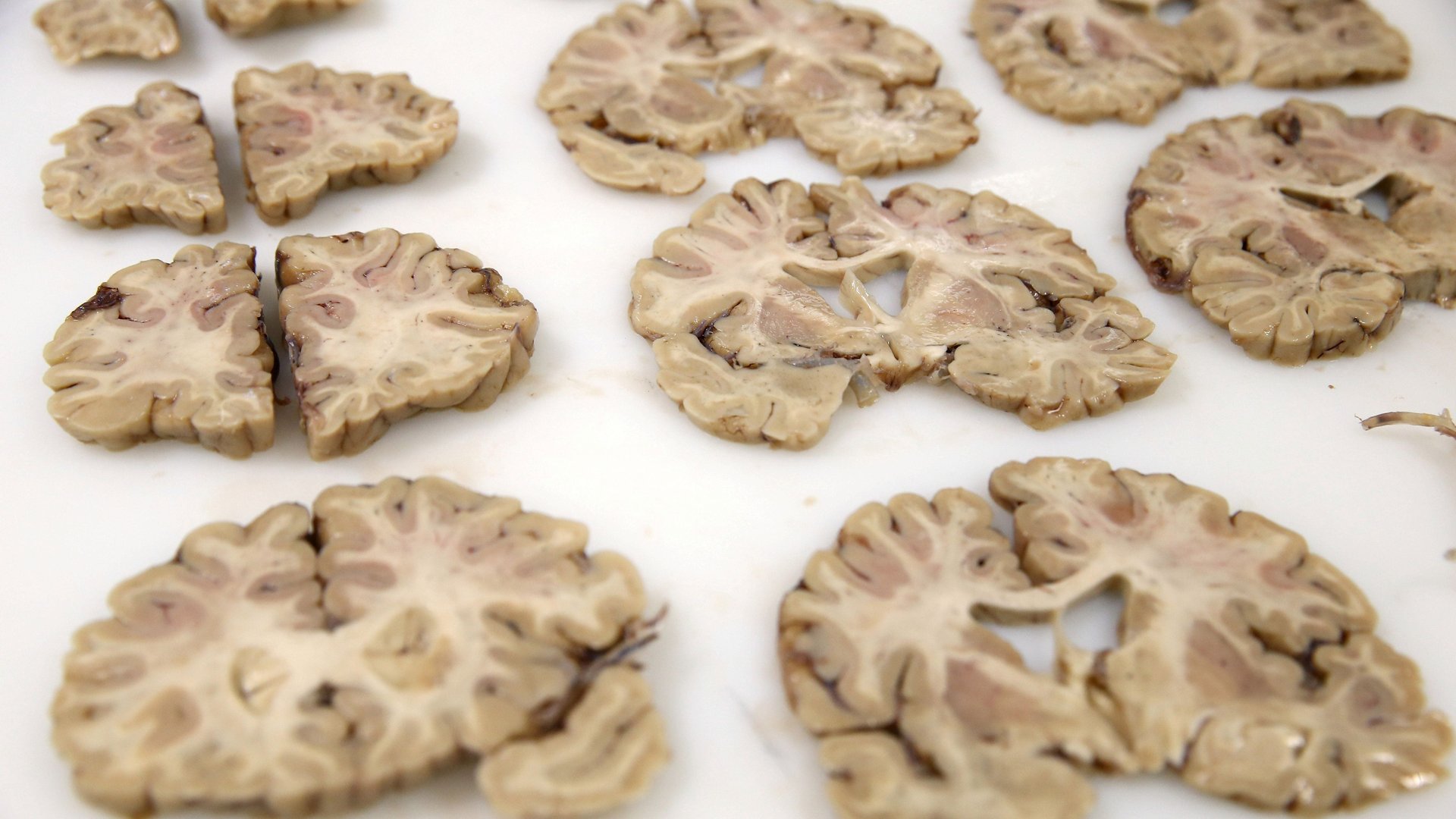An organ once deemed “useless” may play a role in Parkinson’s disease
For years, medical scientists have suspected the appendix—a tiny organ tucked away near our large intestines—lacks a real purpose in our bodies. They believed it was a vestigial organ, that might have been a part of the digestive systems of our ancestors, but did nothing for modern humans except occasionally get inflamed and force a surgical removal.


For years, medical scientists have suspected the appendix—a tiny organ tucked away near our large intestines—lacks a real purpose in our bodies. They believed it was a vestigial organ, that might have been a part of the digestive systems of our ancestors, but did nothing for modern humans except occasionally get inflamed and force a surgical removal.
But that mindset is slowly changing. Last year, researchers showed that the appendix regulates aspects of our gut’s immune system. And in a paper published Oct. 31 (paywall) researchers found that people who had an appendectomy were less likely than the general population to develop Parkinson’s disease later in life. They analyzed data from the Swedish national patient registry, which gave them access to the medical information for the entire country from 1964 to 2016. Out of a 1.7 million total people, roughly half a million had appendectomies. In patients with appendectomies, the rate of developing Parkinson’s was 1.17 cases per 1,000 people; for all others, the rate was 1.4 cases per 1,000 people.
They also looked at a smaller dataset of 847 people with Parkinson’s, which included 54 people who’d had their appendixes removed. That subset started showing symptoms of Parkinson’s about three and a half years later than the other patients.
The research team thinks that this correlation could have something to do with a protein called alpha-synuclein, which is is ubiquitous in all people. However, in patients with Parkinson’s disease, shortened versions of alpha-synuclein build up to form misshapen proteins in the brain, called Lewy bodies. These clumps can spread across neurons—particularly those that make a neurotransmitter called dopamine—destroying them in the process. The tremors and trouble moving associated with Parkinson’s come from the lack of dopamine. Ultimately, the disease is fatal.
The same kind of clumps of cleaved alpha-synuclein that appear in the brains of Parkinson’s patients may be present in most people’s appendixes, too—even among those who never develop neurodegenerative disease. In the recent study, the research team also examined the preserved appendixes from 48 patients who had had appendectomies—some from people who were healthy other than suspected acute appendicitis, and some from patients who later developed Parkinson’s disease. “Much to our surprise, we found abundant synuclein aggregates inside the nerve fibers, inside the appendix in 46 out of the 48 subjects we studied,” Patrik Brundi, a neuroscientist at the Van Andel Research Institute in Michigan and co-author of the paper, said in a press conference. Patients with Parkinson’s tended to have more of the misshapen proteins in their appendixes, but it was present in healthy people, too.
When shorter forms of a protein are found in the body, it usually means those proteins have been purposefully broken down to keep the body functioning said Bryan Killinger, the lead author of the paper, but it’s not clear why that would be happening in the appendix. Nevertheless, it seems like if shortened forms of alpha-synuclein escape the appendix, it raises the risk for Parkinson’s later on. The vagus nerve, which connects the gastrointestinal tract to the brain, may provide a pathway for these proteins to reach the brain, said Viviane Labrie, a geneticist and neurobiologist who also worked on the paper, in a press conference. The area of the brain stem where the vagus nerve ends isone of the first areas where clumps of alpha-synuclein show up in people with Parkinson’s.
Scientists postulate that there must be some—or many—triggers that allow alpha-synucein to escape the appendix. There could be genetic or environmental risk factors, or even changes in the gut microbiome. Or maybe it’s something else completely. “There’s likely to be many sites of origin in terms of where Parkinson’s disease starts, the GI tract being one of them,” Labrie said. Just because the appendix may somehow be involved doesn’t mean that everyone should have it removed, nor that people without appendixes are in better health. Finding the connection, though, suggests that maybe there’s a way to treat Parkinson’s with therapies targeting the gut.